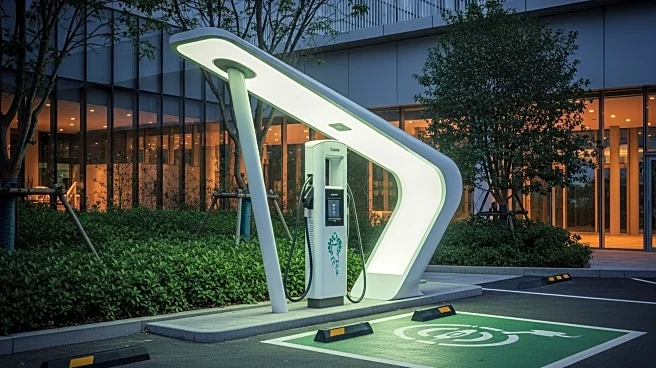What's Happening?
Mike Murphy of the EV Politics Project has highlighted the growing polarization surrounding electric vehicles (EVs) and the future of incentives aimed at promoting their adoption. The discussion comes as the third quarter of 2025 sees a significant surge in interest in EVs, driven by the impending expiration of the $7,500 federal tax credit. This credit has been a crucial factor in making EVs more affordable for consumers, thereby boosting sales. The conversation around EVs has become increasingly divided, with debates focusing on environmental benefits, economic impacts, and the role of government incentives in shaping the automotive market.
Why It's Important?
The polarization of EVs reflects broader societal debates about environmental policy, economic priorities, and the role of government intervention in markets. The expiration of the federal tax credit could have significant implications for the EV market, potentially slowing sales growth if no new incentives are introduced. This situation underscores the importance of policy decisions in driving technological adoption and market trends. Stakeholders, including automakers, consumers, and policymakers, are closely watching these developments, as they could influence the future trajectory of the automotive industry and its environmental impact.
What's Next?
As the federal tax credit nears its end, discussions are likely to intensify regarding alternative incentives to sustain the momentum in EV adoption. Policymakers may consider new measures to support the industry, such as extending existing credits, introducing new subsidies, or implementing regulatory changes. The outcome of these discussions will be critical in determining the future landscape of the EV market and its role in achieving environmental goals. Automakers and consumers alike will need to adapt to the evolving policy environment and market conditions.










